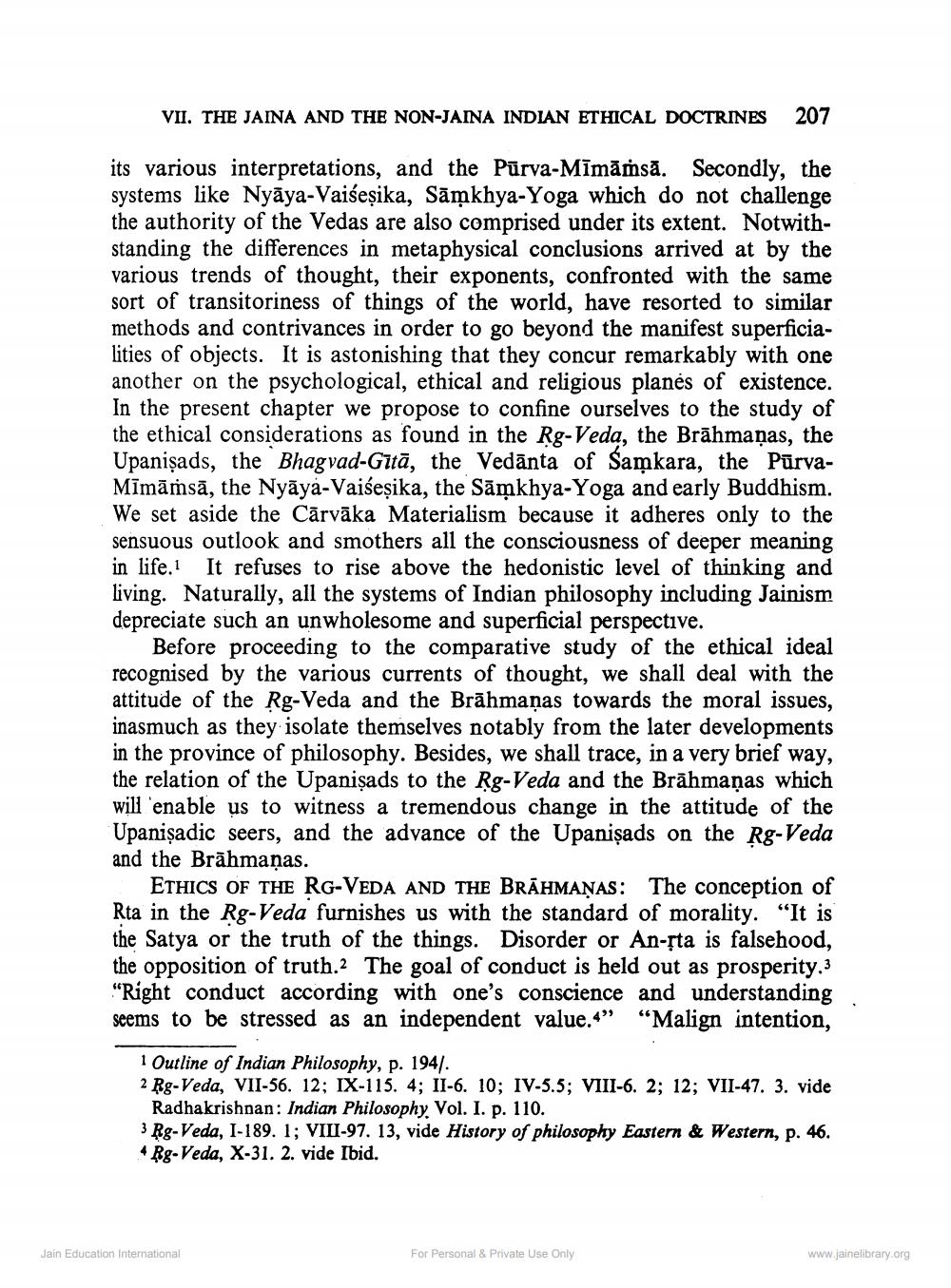________________
VII. THE JAINA AND THE NON-JAINA INDIAN ETHICAL DOCTRINES
207
its various interpretations, and the Pūrva-Mīmāmsă. Secondly, the systems like Nyāya-Vaiseșika, Sāmkhya-Yoga which do not challenge the authority of the Vedas are also comprised under its extent. Notwithstanding the differences in metaphysical conclusions arrived at by the various trends of thought, their exponents, confronted with the same sort of transitoriness of things of the world, have resorted to similar methods and contrivances in order to go beyond the manifest superficialities of objects. It is astonishing that they concur remarkably with one another on the psychological, ethical and religious planes of existence. In the present chapter we propose to confine ourselves to the study of the ethical considerations as found in the Rg-Veda, the Brāhmaṇas, the Upanişads, the Bhagvad-Gītā, the Vedānta of Samkara, the PūrvaMīmāṁsā, the Nyāya-Vaiseșika, the Sāņkhya-Yoga and early Buddhism. We set aside the Cārvāka Materialism because it adheres only to the sensuous outlook and smothers all the consciousness of deeper meaning in life. It refuses to rise above the hedonistic level of thinking and living. Naturally, all the systems of Indian philosophy including Jainism depreciate such an unwholesome and superficial perspective.
Before proceeding to the comparative study of the ethical ideal recognised by the various currents of thought, we shall deal with the attitude of the Rg-Veda and the Brāhmaṇas towards the moral issues, inasmuch as they isolate themselves notably from the later developments in the province of philosophy. Besides, we shall trace, in a very brief way, the relation of the Upanişads to the Rg-Veda and the Brāhmaṇas which will enable us to witness a tremendous change in the attitude of the Upanisadic seers, and the advance of the Upanişads on the Rg-Veda and the Brāhmaṇas.
ETHICS OF THE RG-VEDA AND THE BRĀHMAŅAS: The conception of Rta in the Rg-Veda furnishes us with the standard of morality. “It is the Satya or the truth of the things. Disorder or An-ệta is falsehood, the opposition of truth.2 The goal of conduct is held out as prosperity.3 "Right conduct according with one's conscience and understanding seems to be stressed as an independent value." "Malign intention,
1 Outline of Indian Philosophy, p. 194). 2 Rg-Veda, VII-56. 12; IX-115. 4; 11-6. 10; IV-5.5; VIII-6. 2; 12; VII-47. 3. vide
Radhakrishnan: Indian Philosophy, Vol. I. p. 110. 3 Rg-Veda, I-189. 1; VIII-97. 13, vide History of philosophy Eastern & Western, p. 46. * Rg-Veda, X-31. 2. vide Ibid.
Jain Education International
For Personal & Private Use Only
www.jainelibrary.org




